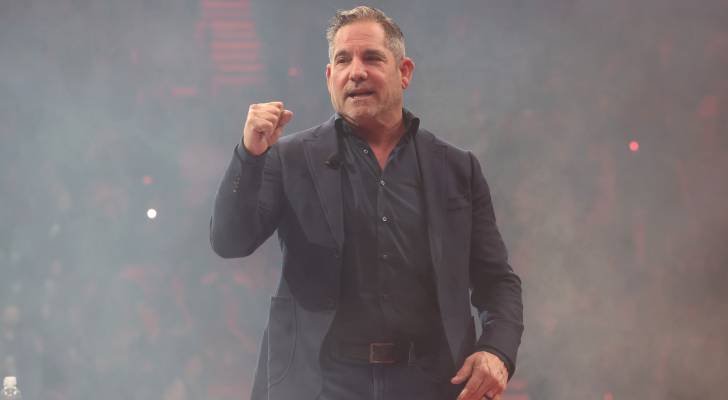
Given how much home prices have soared recently, many homeowners may be feeling richer than ever. But real estate mogul Grant Cardone says your house isn’t a smart investment — far from it.
In an interview with podcaster Sean Mike Kelly, Cardone called buying a home “a terrible investment.”
That may sound ironic coming from someone known for investing in residential real estate. But Cardone was quick to explain why: “[A home] doesn’t cash flow. You don’t get big tax write-offs because of it. You have no leverage. You’re living in it. You’re paying for it. You never own it. Even when the loan is paid, you don’t own it, no, you still got to pay property taxes, still got to insure, still got to maintain it.”
When you buy a home to live in, it’s true that it doesn’t generate any cash flow. And even once the mortgage is paid off, there are still ongoing costs: property taxes, insurance premiums, repairs and maintenance. And they can add up fast.
For example, Ratehub did a case study of the cost of "hidden fees" that come with homeownership. For a property worth $1,128,100 with a $902,480 mortgage at 5.14% amortized over 25 years, the additional monthly costs totalled $8,532, including the mortgage payment, property tax, home insurance, utilities, internet, as well as putting money away for a home emergency fund or funds spent on maintenance/repairs. If you were to take out the mortgage cost, the total would still be $3,211 per month, or $38,532 yearly.
Cardone says that what keeps people from recognizing the financial downsides is emotion.
“People get emotional about their house — ‘It’s my house!’” he said. “It ain’t your house. You’re a partner in this house with the state.”
Grant Cardone: ‘Never buy a house’
Cardone’s suggestion is simple: “Never buy a house, rent where you live.”
But that doesn’t mean he’s against real estate entirely.
“I’m not saying don’t own real estate,” he clarified. “I’m saying live in a house and pay rent. Take all the money that you would have spent on that house and invest in real estate that cash flows — that pays you every month.”
So, what kind of real estate is he talking about?
Cardone listed several options: “Could be retail, storage, apartment buildings like we invest in. Could be land — if you’re a farmer or rancher and you know how to get cows to cash flow, then do that.”
Let’s break down some of these opportunities.
Opt for a different types of real estate investment
Instead of focusing on a home, consider real estate as an investment. To do this, you need to consider what sectors perform best.
Cardone’s first suggestion: Retail real estate
Cardone pointed to retail real estate as one potential opportunity — but not all retail is created equal.
With the rise of e-commerce, many brick-and-mortar stores have struggled, which can directly affect the income stream for retail property owners. That’s why selectivity is key.
Ben Mallah, another fellow Florida-based real estate mogul, says he focuses on what he calls “essential real estate” — specifically, “retail that the internet can’t hurt” and “Amazon can’t hurt.”
As online shopping continues to disrupt traditional retail, properties that serve everyday, in-person needs — like grocery stores and pharmacies — tend to offer more resilience. Big-box retailers may come and go, but think about your local supermarket. How long has it been in the same spot? Likely for years, if not decades. That kind of staying power is what makes grocery-anchored real estate attractive.
Cardone’s second suggestion: Residential apartments
Another type of real estate Cardone suggests? Apartments — a sector he’s heavily invested in himself.
Multifamily properties offer a key advantage: consistent cash flow. Unlike single-family homes, apartment buildings typically house multiple tenants, which helps spread out risk. If one unit sits vacant, the others can still generate income.
Apartments also tend to be resilient during economic shifts. No matter what’s happening in the broader economy, people still need a place to live. And with elevated home prices making ownership less accessible for many Canadians, more people are turning to renting — which helps drive demand and keep occupancy rates high.
As with retail, real estate investment platforms and REITs have made it easier than ever for everyday investors to access the apartment market.
Cardone’s third suggestion: Farmland
Cardone also mentioned agricultural land — though with a caveat: It’s best suited for those who understand how to make it cash flow.
While farmland isn’t as commonly discussed as retail or apartment buildings, it can be a compelling long-term investment. The logic is simple: come what may, people still need to eat.
That consistent demand makes farmland a resilient asset, often serving as a hedge during times of economic uncertainty.
According to Farm Credit Canada, the national average farmland value increased 9.3% in 2024. And while this represents a slower pace of appreciation from the previous year, it remains higher than the average of the last 10 years (9.1%). However, for 2025, uncertainty and volatility are expected to be significant due to potential trade disruptions at the US/Canada border and the fear of a looming trade war between the two nations at the behest of President Trump.
Sources
1. Ratehub: Monthly carrying costs when buying a home, by Jamie David (May 29, 2024)
2. Farm Credit Canada: 2024 farmland values in Canada: Continued, steady growth (Mar 18, 2025)
This article provides information only and should not be construed as advice. It is provided without warranty of any kind.